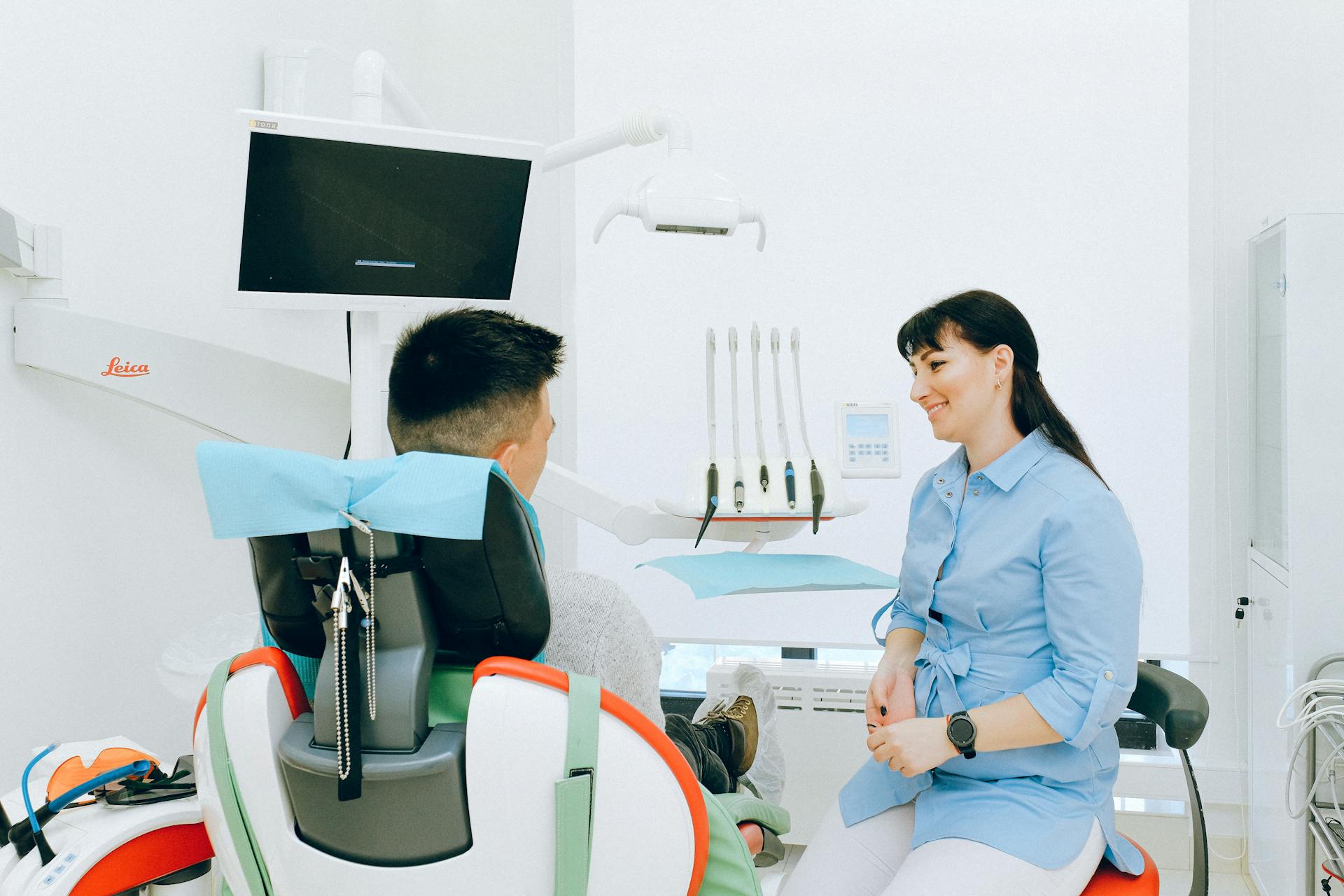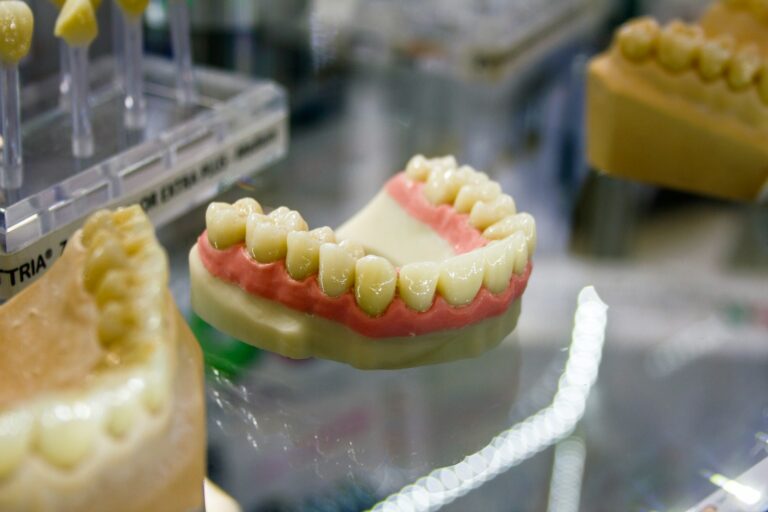
Dental implants have emerged as a widely accepted solution for tooth replacement, but several misconceptions continue to exist. Concerns regarding pain, cost, and the perceived suitability of implants for specific age groups can discourage individuals from exploring this effective dental option.
In this article, we aim to clarify the most common myths about dental implants. Whether you are contemplating implants for yourself or simply seeking to understand the facts, continue reading to uncover the truth behind these remarkable dental solutions.
What Are Dental Implants?

Dental implants represent an advanced solution for replacing missing teeth, providing individuals with a long-term option to restore their smile and enhance their dental health.
Typically crafted from durable titanium posts, these implants are surgically inserted into the jawbone, where they undergo a remarkable process known as osseointegration. This allows the implants to integrate seamlessly with the bone tissue.
This innovative approach not only improves the aesthetics of one’s smile but also offers functional advantages that closely resemble natural teeth, making dental implants a preferred choice in restorative dentistry.
Myth: Dental Implants Are Painful
One prevalent misconception about dental implants is the belief that the procedure is painful, which may discourage many individuals from exploring this effective option for tooth replacement. However, advancements in anaesthesia and sedation techniques used in oral surgery have greatly enhanced patient comfort, allowing for effective pain management throughout the implant process.
For example, many dental professionals now employ local anaesthesia, conscious sedation, or even general anaesthesia based on the unique needs and preferences of each patient. These methods ensure that individuals experience minimal discomfort, with many even reporting a sense of tranquillity during the procedure.
Patient testimonials often reveal that many were pleasantly surprised by the smoothness of the process, noting that their worries about pain were unfounded. This ability to enjoy a relaxed experience, coupled with effective pain control, has resulted in higher satisfaction rates and renewed confidence among patients considering dental implants.
Myth: Dental Implants Are Only for Old People
The notion that dental implants are only for older adults is a common misconception that overlooks the wide range of patients who can benefit from this reliable tooth replacement option. In reality, dental implants can be an excellent choice for individuals of various ages, as long as they meet specific candidacy criteria set by dental professionals.
Younger patients, for instance, who may have experienced tooth loss due to trauma, congenital issues, or dental decay, also have the opportunity to restore their smiles with this advanced solution. It is crucial to consider factors such as bone density, overall oral health, and personal habits rather than merely focusing on age.
By assessing these aspects, dental practitioners can confidently recommend dental implants as a viable alternative for younger individuals, enabling them to regain not just functionality but also a renewed sense of confidence in their appearance.
Ultimately, age should not be a barrier to seeking effective and long-lasting dental solutions.
Myth: Dental Implants Are Too Expensive
Many individuals tend to overlook dental implants, often assuming they are prohibitively expensive. However, when considering the long-term benefits and the potential coverage from dental insurance, they can actually be a cost-effective solution for tooth replacement.
Although the initial costs may appear high, the longevity and durability of implants frequently outweigh these expenses compared to other treatment options, making them a worthwhile financial investment.
When assessing the overall costs associated with dental treatments, it is important to factor in how often alternatives like dentures or bridges may require replacement or maintenance over time. In contrast, dental implants are designed to last for many years—often for a lifetime—thereby reducing the likelihood of needing multiple future procedures.
Furthermore, many insurance plans offer partial coverage for implants, which can significantly mitigate the financial burden. This consideration of initial investment against long-term savings and improved quality of life makes dental implants an appealing option for those in search of a permanent solution.
Myth: Dental Implants Are Not as Good as Natural Teeth
A common misconception is that dental implants are somehow inferior to natural teeth. However, clinical studies have shown that, when placed correctly, dental implants can offer functional benefits and aesthetics that closely resemble those of natural teeth. This high success rate has resulted in increased patient satisfaction among individuals who have undergone the implant procedure.
Research indicates that implants provide significant advantages in terms of stability and durability, often outlasting natural teeth under certain conditions. Many patients report that implants help restore their confidence, allowing them to eat and speak without discomfort.
In surveys, a considerable number of patients express a renewed sense of normalcy, emphasising that implants truly mimic the appearance and feel of their own teeth. Additionally, since implants do not depend on adjacent teeth for support, they help to maintain the overall structure of the mouth without compromising surrounding teeth, which further contributes to long-term oral health.
Myth: Dental Implants Take a Long Time to Heal

The belief that dental implants require an excessively long healing time is a misconception that can create unnecessary anxiety for potential patients. In reality, while healing times can vary, they are often shorter than many expect. With appropriate post-operative care and a commitment to follow-up appointments, numerous patients enjoy a quick recovery, enabling them to return to their normal activities without significant delay.
Understanding the healing timeline is crucial for anyone considering this procedure. Initially, after the implants are placed, the body initiates a process known as osseointegration, during which the bone integrates securely with the implant. This stage typically spans several weeks, generally ranging from three to six months, depending on individual health factors and bone density.
Effective post-operative care, which includes maintaining good oral hygiene and possibly making dietary adjustments, is vital for facilitating this process.
Regular follow-up visits with dental professionals not only ensure that the healing is progressing as anticipated but also provide opportunities to address any concerns that may arise. This proactive approach helps make the entire experience smoother and more reassuring for the patient.
Myth: Dental Implants Are Not a Permanent Solution
It is a common misconception that dental implants are not a permanent solution for tooth loss. In reality, they are designed to last and can function effectively for many years when properly maintained and cared for. Recent advancements in dental technology have led to the creation of implants that, with appropriate maintenance, can offer a lifetime of reliability for successful tooth replacement.
This ongoing evolution in implant materials and techniques—including the use of biocompatible substances and innovative placement methods—has significantly improved their success rates. Maintaining regular dental check-ups, practising meticulous oral hygiene, and leading a healthy lifestyle are all essential factors that contribute to the longevity of these restorations.
By committing to diligent dental care, patients can truly maximise their investments in dental implants.
Moreover, the integration of cutting-edge technologies, such as 3D imaging and computer-aided design, ensures precise implant placement, which further enhances their durability and overall success.
Myth: Dental Implants Require Special Care
A common misconception about dental implants is that they require special care that differs from standard oral hygiene practices. In reality, implants can be cared for using the same dedicated oral care routine as natural teeth.
Regular dental visits and proper oral hygiene are essential for ensuring the longevity of dental implants.
Much like natural teeth, individuals with dental implants should:
- Brush at least twice a day with fluoride toothpaste
- Floss daily to remove plaque and food particles
Additionally, using antibacterial mouthwash can contribute to overall oral health. It is crucial for individuals to stay on top of routine dental check-ups, as these appointments provide professional cleaning and allow the dentist to monitor the condition of the implants, ensuring they remain healthy and functional.
Consistent care not only promotes a beautiful smile but also extends the lifespan of the implants.
Myth: Dental Implants Can Be Rejected by the Body
The concern that dental implants might be rejected by the body often arises from a misunderstanding of the process known as osseointegration, which is a well-established principle in dental medicine. While there are indeed risks of infection or complications, effective patient education and thorough preparation can significantly alleviate these worries.
Osseointegration refers to the direct bonding of the implant with the jawbone, transforming the implant into a stable foundation for a replacement tooth. The success of this process depends on a variety of factors, including the quality of the bone, the surgical technique used, and the care taken during the post-operative period.
Having adequate bone density is essential, as it provides the support necessary for the implant. Additionally, avoiding tobacco use and maintaining good oral hygiene are crucial for promoting healing and preventing infection.
By informing patients about these important factors, dental professionals can not only dispel any fears but also give the power to individuals to take proactive steps in their treatment, ultimately ensuring the best possible outcomes.
Myth: Dental Implants Are Only for Replacing Single Teeth

It is a common misconception that dental implants are only appropriate for replacing individual teeth. In reality, this belief overlooks the diverse range of implant options and solutions available for multiple tooth replacements, such as bridges and the All-on-4 technique. These versatile alternatives can effectively restore smiles for individuals experiencing varying degrees of tooth loss.
For example, single tooth implants are specifically designed to replace one missing tooth while preserving the health of adjacent teeth. On the other hand, fixed bridge implants offer a stable solution for restoring multiple adjacent teeth, enhancing both chewing efficiency and aesthetic appearance.
The All-on-4 system stands out as an innovative approach, providing a complete arch restoration using just four strategically placed implants. This method can significantly improve the quality of life for individuals who currently rely on removable dentures.
Removable dentures remain a practical option for many patients, offering comfort and functionality without the permanence of traditional implants. Each solution is tailored to meet specific needs and preferences, making dental implants an adaptable choice in the realm of restorative dentistry.
Myth: Dental Implants Are Only for Cosmetic Purposes
While many people think of dental implants primarily as a way to enhance aesthetics, this view overlooks their significant functional benefits, which can greatly improve bite alignment and overall oral health. Dental implants not only restore the appearance of a smile but also play a vital role in promoting better gum health and functionality within the oral cavity.
These implants act as reliable anchors for artificial teeth, effectively restoring biting functionality that may have diminished due to tooth loss. By filling in the gaps in the dental arch, they help maintain proper bite alignment, preventing the remaining teeth from shifting or becoming misaligned over time.
Moreover, dental implants contribute to improved gum health by reducing the risk of periodontal disease, as they stimulate the jawbone and encourage healthy tissue growth. Choosing dental implants can lead to a more balanced bite and a healthier oral environment—both of which are essential for long-term dental well-being.
Myth: Dental Implants Are Only for People with Good Oral Health
The misconception that only individuals with good oral health qualify for dental implants can deter those with existing dental issues from considering this valuable tooth replacement option. In reality, many patients can achieve successful outcomes with the right treatment and by taking individual candidacy factors into account, even if they have experienced dental challenges in the past.
Factors such as the condition of the jawbone, the presence of gum disease, or prior tooth loss do not automatically disqualify someone from receiving implants. A thorough evaluation by a dental professional is essential, as they can assess specific oral health conditions and recommend necessary treatments that can enhance eligibility.
Personalised treatment plans may involve preparatory procedures like bone grafting or periodontal care. Ultimately, consulting with experts in the field enables individuals to fully understand their options and embark on a confident journey towards restoring their smiles, regardless of their previous dental history.
Myth: Dental Implants Are Not Covered by Insurance
Many individuals hesitate to pursue dental implants due to the misconception that these procedures are not covered by dental insurance. However, this is often not the case. Depending on the specifics of an insurance plan, some patients may discover that their coverage extends to part of the costs associated with the implant procedure, making it a more feasible option than they initially thought.
It is essential for patients to carefully review their insurance policies, as coverage can vary significantly between different plans and even among various employers. For example, some plans may cover a percentage of the costs for surgical placement, while others might include coverage for preliminary treatments such as bone grafts or abutments.
This variability highlights the importance of consulting with dental professionals, who can provide personalised insights based on individual insurance details and help patients navigate the complexities of their coverage.
Ultimately, understanding these nuances allows prospective implant candidates to make informed decisions, alleviating concerns about potential out-of-pocket expenses.
Myth: Dental Implants Are Not Suitable for Smokers
The common belief that smokers are ineligible for dental implants arises from concerns regarding increased surgical risks and complications. However, with the right precautions and thorough patient education, many smokers can still be viable candidates for successful implant procedures.
It is crucial for smokers to fully grasp the implications of their habits and maintain rigorous oral hygiene practices.
By understanding how smoking can affect healing and elevate the risk of infection, individuals can take proactive measures, such as quitting smoking or at least reducing their consumption before and after surgery. Regular dental check-ups and adherence to prescribed care routines can significantly enhance outcomes.
Education is key, as it give the power tos smokers to make informed choices, highlighting that while the risks may be greater, they are not insurmountable.
With personalised care and support, many smokers can still reap the benefits of dental implants, leading to improved oral health and increased confidence.
Myth: Dental Implants Can Be Done by Any Dentist

There is a common misconception that any general dentist can perform dental implant surgery. However, the reality is that this procedure requires the expertise of trained dental specialists, such as oral surgeons or periodontists, who possess the necessary credentials and experience in this advanced area of restorative dentistry.
These specialists complete extensive additional training beyond dental school, focusing specifically on surgical techniques and the complexities involved in implant placement. This specialised education equips them to handle various clinical challenges, manage complications effectively, and tailor treatment plans to meet individual patient needs.
For anyone considering dental implants, it is essential to ensure that the chosen professional holds relevant qualifications, such as board certification and a proven track record in implantology. Relying solely on a general dentist could increase the risks of complications or unsuccessful outcomes, which underscores the importance of selecting a qualified expert for this intricate procedure.
Myth: Dental Implants Have a High Failure Rate
The notion that dental implants have a high failure rate is somewhat misleading. Extensive clinical studies indicate that when placed correctly, the success rate for dental implants is impressively high, often exceeding 95%. This evidence-based practice highlights the reliability of implants as a long-term solution for tooth replacement.
Several factors contribute to this impressive success rate, including the patient’s overall health, the quality of the bone where the implant is placed, and the expertise of the dental professional performing the procedure. Thorough pre-operative assessments and advanced imaging techniques facilitate precise planning, allowing for personalised treatment that addresses the unique needs of each individual.
Following post-operative care recommendations is also crucial for ensuring the successful integration of the implant with the bone. Clinical studies consistently affirm that when these best practices are followed, patients can enjoy not only enhanced aesthetic outcomes but also functional advantages, such as improved chewing ability and comfort, which ultimately lead to higher satisfaction rates.
Myth: Dental Implants Are a New Technology
Some individuals may think that dental implants are a modern marvel of dental technology, but their origins actually date back several decades. Over time, significant advancements have been made, driven by extensive academic research and clinical studies that have enhanced their design and effectiveness.
The idea of replacing lost teeth with artificial substitutes can be traced back to ancient civilisations, but it wasn’t until the mid-20th century that contemporary dental implants began to emerge. Visionary researchers identified the need for more dependable solutions, leading to the introduction of titanium as a biocompatible material.
This innovation enabled osseointegration, where the implant fuses with the jawbone, creating a stable base for replacement teeth.
Since then, ongoing innovations—bolstered by rigorous clinical trials—have refined surgical techniques, improved implant shapes, and enhanced materials. These developments have confirmed the effectiveness and reliability of dental implants as a restorative option that meets the needs of a diverse range of patients.
Myth: Dental Implants Will Set Off Metal Detectors
The belief that dental implants will activate metal detectors is a common misconception, often arising from uncertainty about the materials used in their construction. Most dental implants are made from titanium posts, which are biocompatible and generally do not trigger metal detectors. This allows patients to travel without unnecessary concern.
The non-reactive nature of titanium is one of the primary reasons it is favoured for dental implants. It is essential for patients to recognise that these implants are designed with their safety in mind, ensuring comfort during everyday activities, including air travel.
Unfortunately, dental anxiety often arises from misinformation and fears related to such issues. By educating patients about the properties of titanium and dispelling these misconceptions, dental professionals can help alleviate their concerns.
Knowledge give the power tos individuals to embrace their dental solutions, allowing them to approach their treatments with confidence and peace of mind.
Myth: Dental Implants Can Cause Nerve Damage
Many potential patients often hesitate to consider dental implants due to their concerns about nerve damage during the surgical procedure. However, when these procedures are carried out by skilled dental professionals, such concerns are largely unfounded.
With careful planning and advanced imaging techniques, the risk of nerve damage can be significantly minimised, leading to a safer experience.
Understanding the complexities involved in the placement of dental implants can greatly help ease these fears. It is important to recognise that advanced imaging technologies, such as 3D cone beam computed tomography, enable specialists to accurately evaluate bone structure and nerve positioning.
By consulting with experienced professionals who employ these advanced technologies, patients can gain a clearer understanding of the surgical process and its associated risks. Patient education is vital in ensuring safety, as it give the power tos individuals to ask questions and make informed decisions regarding their dental care.
Myth: Dental Implants Require Multiple Surgeries

Many people mistakenly believe that dental implants require multiple surgeries, which can discourage them from considering this highly effective tooth replacement option. In fact, for most patients, the implants can be placed in a single surgical procedure, followed by a healing period and a few follow-up appointments for the final restoration.
During the initial procedure, the dental implant is securely anchored into the jawbone, creating a solid foundation for the artificial tooth. After the surgery, a critical healing period begins, typically lasting several months. During this time, the implant undergoes a process called osseointegration, where it fuses with the bone.
Your dentist will likely schedule follow-up visits during this healing phase to monitor progress and ensure everything is proceeding as expected. Once the healing is complete, the final steps involve attaching a custom-made crown, enabling you to enjoy a fully functional and natural-looking smile.
With careful planning and attention to detail, this entire process can be made as smooth and efficient as possible.
Frequently Asked Questions on Common Myths About Dental Implants Debunked
What is the most common myth about dental implants?
The most common myth about dental implants is that they are painful and require a long recovery time. In reality, dental implant surgery is relatively painless and the recovery time is typically just a few days.
Can dental implants be rejected by the body?
No, dental implants cannot be rejected by the body. They are made from biocompatible materials, such as titanium, which means they are accepted and integrated into the jawbone without any risk of rejection.
Do dental implants look fake?
No, dental implants do not look fake. They are designed to look and function just like natural teeth. The crown that is placed on top of the implant is custom-made to match the color and shape of your surrounding teeth, making it virtually indistinguishable.
Are dental implants only for older adults?
No, dental implants are not just for older adults. They can be a suitable option for anyone who has lost a tooth and wants to replace it. Age is not a determining factor for candidacy for dental implants.
Do dental implants require special care or maintenance?
No, dental implants do not require any special care or maintenance. Simply practicing good oral hygiene habits, such as brushing and flossing regularly, is enough to keep your dental implants in good condition.
Is the cost of dental implants worth it?
Yes, the cost of dental implants is worth it. While they may have a higher upfront cost compared to other tooth replacement options, they are a long-term solution and have a high success rate. Plus, they can prevent further dental issues and potentially save you money in the long run.






